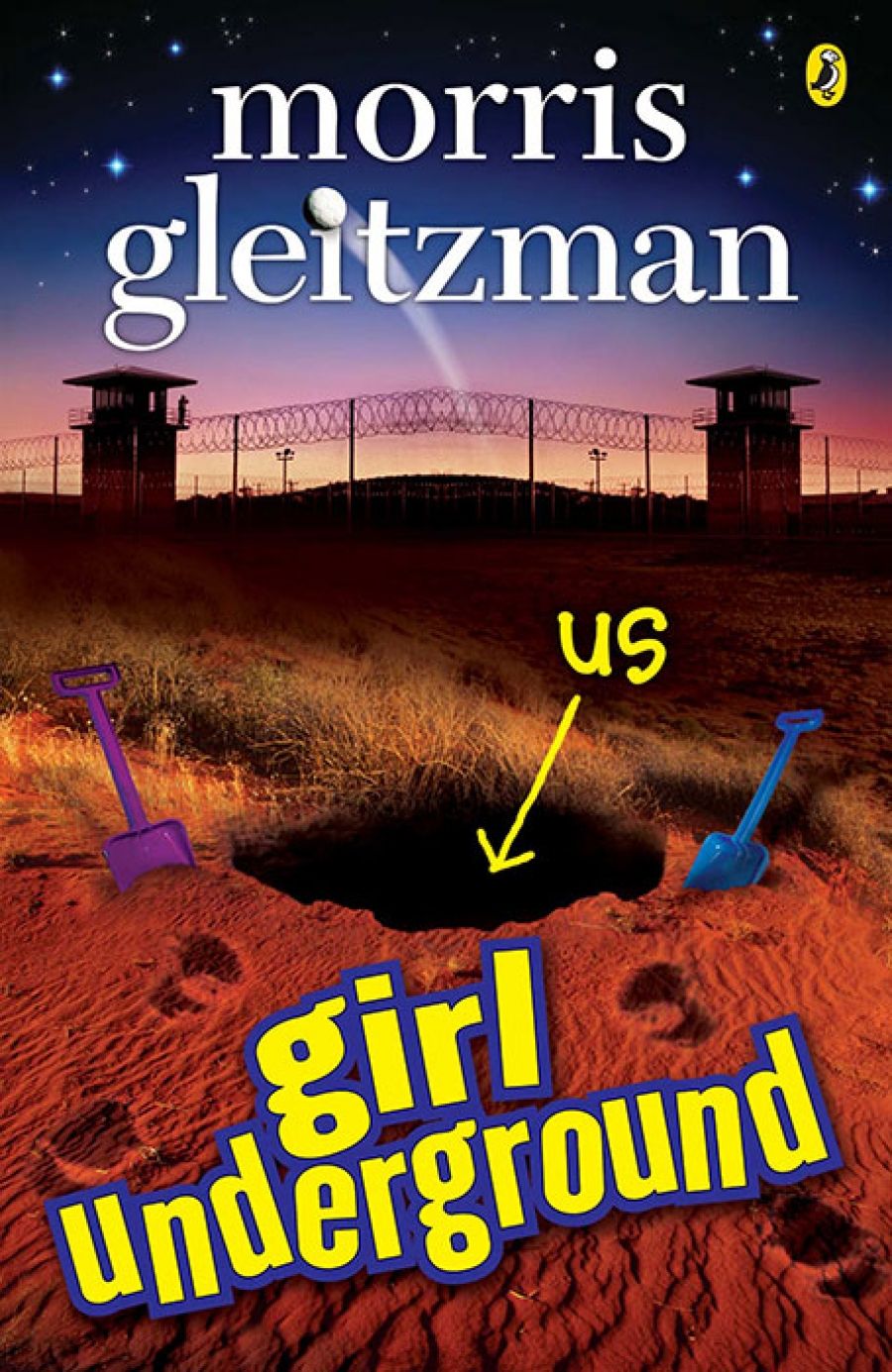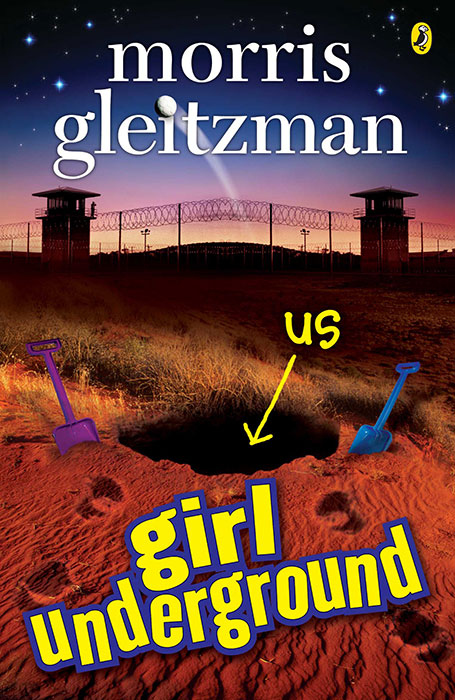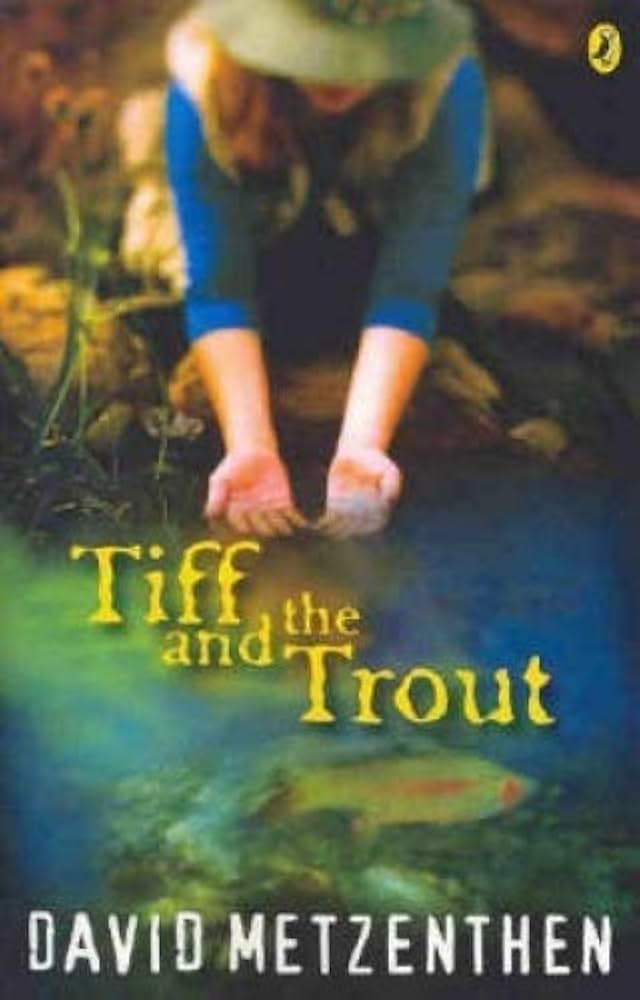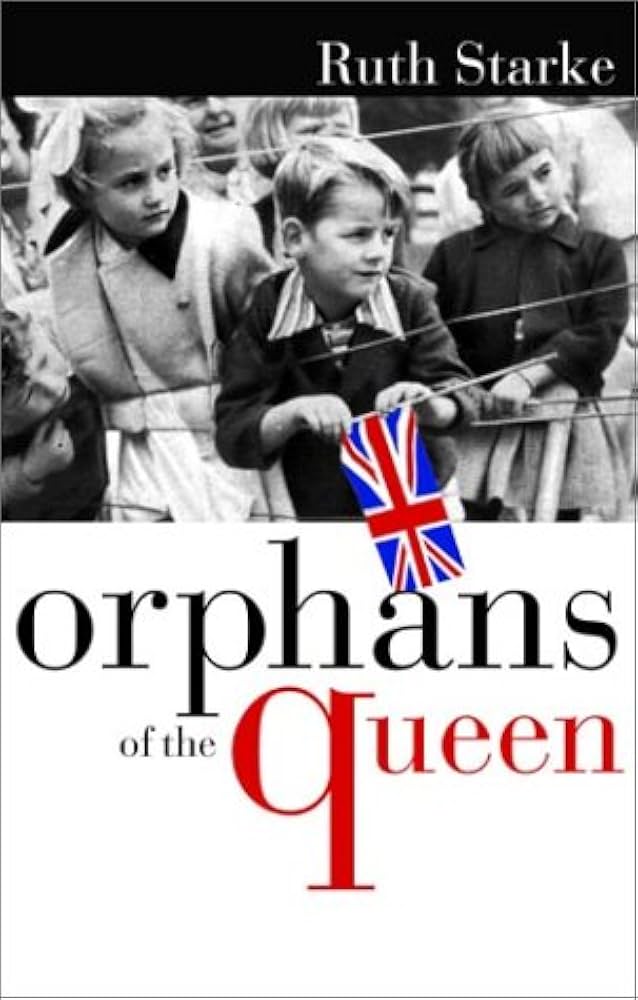
- Free Article: No
- Contents Category: Children's and Young Adult Fiction
- Review Article: Yes
- Article Title: Separate Hells
- Online Only: No
- Custom Highlight Text:
Stories of children in the maelstrom: the horror of mandatory detention; the appalling cruelty of how some orphans are treated by those responsible for them; and youngsters caught in the heartbreak and dislocation of family breakdown – such is the stuff of these three important novels for young people. No coy sensibilities are spared in these reflections of modem life. Here are ordinary adults and children caught up in extraordinary events. All three books show how life can be hard, but that one must meet its sorrows and afflictions with courage, good humour and good friends. Each story is about what happens when a child becomes a victim to events beyond his or her control, be they personal or political, dramatic or mundane.
- Book 1 Title: Girl Underground
- Book 1 Biblio: Penguin, $14.95 pb, 186 pp
- Book 1 Cover Small (400 x 600):

- Book 1 Cover (800 x 1200):

- Book 2 Title: Tiff and the Trout
- Book 2 Biblio: Penguin, $16.95 pb, 208 pp
- Book 2 Cover Small (400 x 600):

- Book 2 Cover (800 x 1200):

- Book 3 Title: Orphans of the Queen
- Book 3 Biblio: Lothian, $14.95 pb, 222 pp
- Book 3 Cover Small (400 x 600):

- Book 3 Cover (800 x 1200):

There is great sadness in these tales: Orphans of the Queen is about the exploitation of children in orphanages in the 1950s; Girl Underground deals with children in detention centres, and Tiff and the Trout is about the all too-ordinary pain of family breakdown. Yet they are all stories of triumph, of courage in the face of adversity, and of joy breaking through the gloom. Although the stories are very different, each has a charming and well-drawn heroine aged about twelve. Each book is sensitively written, informative and sometimes even humorous.
In Ruth Starke’s Orphans of the Queen, our heroine is Hillary Lyon, who, with her little brother ‘Egg’ (short for Gregory), is sent with a ragtag group of children from an English orphanage to Australia. The children believe they will live with loving families in big houses or on farms. Instead, as soon as the ship docks at Fremantle, Egg is whisked off in a truck with the other little boys (no one knows where), while Hilly continues on to Adelaide – and the orphanage from hell. No loving families await these little girls; just hard work, hard words and very hard knocks, all overseen by the fearsome Mother Joseph and her sadistic sidekick, Sister Agnes. It’s all pretty grim stuff, and, as Starke assures us in her afterword, none of it is made up or exaggerated (it is drawn from the accounts of the survivors of this execrable business).
Although Hilly is miserable for herself – the orphanage in England was never as bad as this – mostly she is worried about what has happened to her brother. Her inquiries meet with blank stares or boxed ears, and she doesn’t know where to turn for help. The story is set against the backdrop of the queen’s coronation in 1953. Hilly, who has heard the new monarch’s pledge to love and defend her people, imagines that she will care about her fate and be able to locate her brother. When she learns that the queen is coming to Australia, Hilly writes to Buckingham Palace, and events get under way.
Although parts of this tale are troubling – the beatings, the casual cruelties (toys are confiscated, the girls’ hair is hacked off) – this is more than just a ‘nuns are so mean’ story. There are some very funny passages – the royal tour is wonderfully evoked, in all its pomp and nonsense – and the warm friendships and loyalties among the girls are skilfully drawn.
It is tempting to read this book and think that things were bad back then but that they couldn’t happen now not in Australia, anyway. Then one turns to Girl Underground, the latest offering by the prolific Morris Gleitzman. It’s a tale about Australia’s detention centres and the policy of locking up children behind razor wire. Despite the gravity of the topic – and the profound concern, anger and sorrow that Gleitzman brings to the story – the book is a comical romp from cover to cover. A companion piece to his Boy Overboard (2002), it is full of jokes, wit and charm, and its heroine, Bridget White, is delightful.
Bridget is the daughter of a criminal family. Her father runs a dodgy import business, and their house is full of washing machines without serial numbers, video games from Bulgaria and Turkmenistan, and Russian blenders that are all right if you check them for rust once in a while. Her uncle Grub works at the airport largely rifling luggage, and her brother Gavin is in jail for shoplifting.
From time to time, Bridget’s parents deplore this legacy and try to point her down a more respectable path. They send her to a snobbish, elitist school; the story opens with Bridget trying to settle in. She soon befriends Menzies, the son of a cabinet minister. Menzies is a young man whose social conscience has been awakened, and he is deeply committed to the issue of refugees. He corresponds with Jamal, who, with his sister Bibi, is an inmate of one of Australia’s desert hells. Bridget is appalled by the idea of children being imprisoned; she has always known that being a child was the one advantage she had in her family – if they all got sent to prison at once, she could stay on the outside and look after things. She gets caught up in Menzies’ enthusiasm and the adventure begins.
As always, this much-praised author has produced a great yarn; the action is pacy and the dialogue bright and breezy. Bridget is a joy – so lovingly concerned about her family, so brave and yet so easily embarrassed.
In Tiff and the Trout, we again see the events through the eyes of a lively, yet sensitive, young girl who is suddenly forced to make adult decisions. Tiff lives happily with her mother in a tiny mountain hamlet somewhere in the Victorian high country. Tiff’s father has recently moved out, taking her younger brother with him. Tiffs young mother has never resigned herself to life in a small town; she hates the mountains, the isolation, the cold and the boredom, and wants to make something of her life. Soon she is putting out feelers to go to Queensland, and Tiff must make a big decision. Should she go with her mother, or should she stay in her beloved mountains?
While Tiff is pondering this, the whole idea of home, of place and roots is explored. This story is about family breakdown, of course, but it is also about recognition of one’s own country, and of understanding what makes a place special to you – and, by extension, what makes you unique.
David Metzenthen, an award-winning author, writes superbly; his characters are most sympathetic, especially Tiff. We really get inside her head. But the grieving, angry and guilt-ridden mother and father are wonderfully drawn, too.
In none of these books is a happy ending possible: the orphans remain orphans, the refugees are still locked up, and Tiff’s family will forever be broken. Yet they are all full of positive messages: that life is a precious gift, and that most people are kind and want to do the right thing. All the writers show that, in times of strife, one must stand up and be counted and maintain courage and unwavering integrity.


Comments powered by CComment